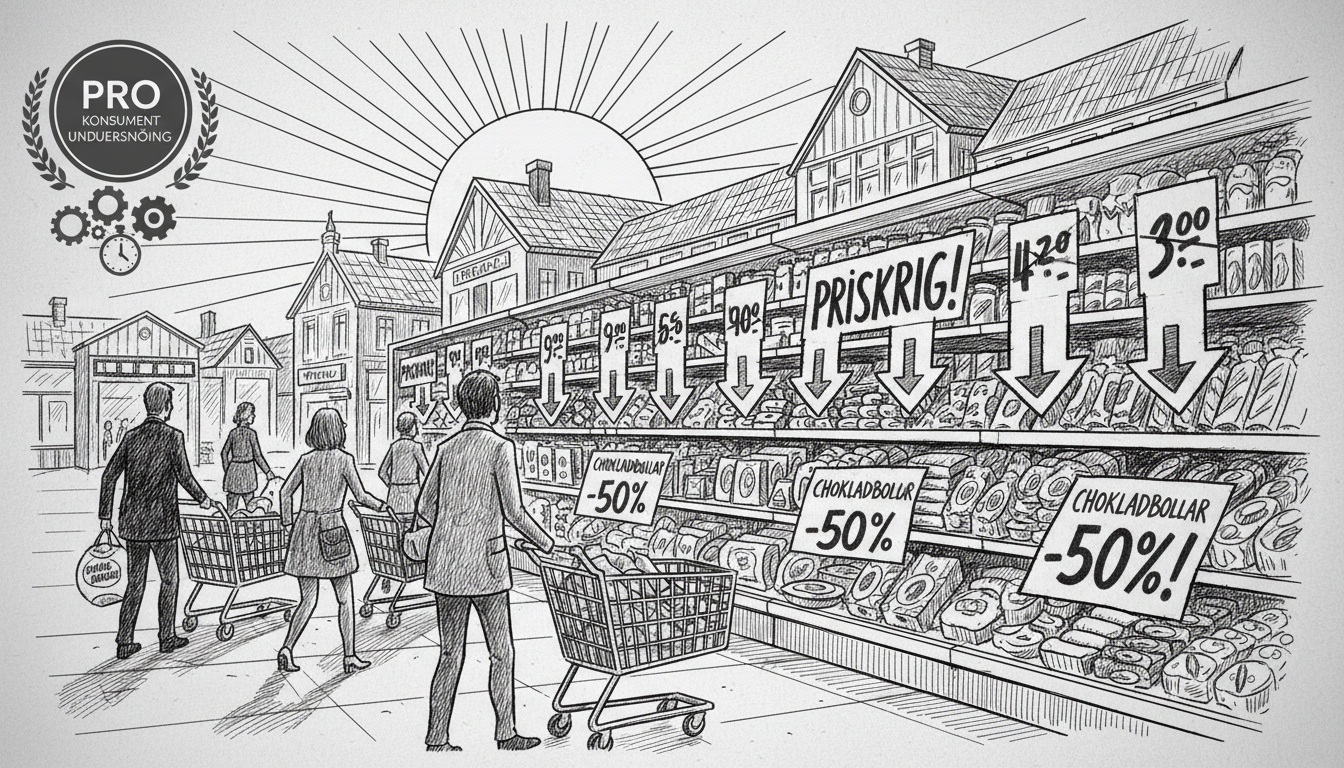Sweden's food prices remained unchanged in October for both groceries and total store inventories. This price stability comes amid an escalating price war between supermarket chains.
Food price expert Ulf Mazur described the situation as unprecedented. He said stores are slashing prices dramatically to attract customers.
Some products saw remarkable price drops. Delicatobollar chocolate balls dropped from 22 kronor to just 9.90 kronor in some stores within two weeks.
Mazur advised consumers to take advantage of the situation quickly. He noted reports of chocolate balls already selling out in some locations.
Several factors contributed to the price freeze. The Swedish krona stabilized and global crop prices declined over the past year. But Mazur identified the main driver as discount chains aggressively lowering prices.
October brings extreme price focus because Sweden's PRO consumer organization conducts its annual price survey. Supermarkets want to show they offer the lowest prices. Recent reports about discount chains performing well also pressured other stores to match prices rather than increase them.
Some product categories bucked the trend. Berry prices rose 7.9 percent overall, with lingonberries jumping 20 percent. ICA's 500-gram lingonberry package increased from 43 to 61 kronor. Jam and marmalade prices followed berry trends upward by 0.9 percent. Beef and caviar saw modest 0.6 percent increases.
Other products became cheaper. Fruit prices dropped 1.2 percent, messmör soft cheese fell 1.0 percent, and frozen vegetables declined 0.7 percent.
Citrus fruits typically become cheaper this time of year, contributing to the fruit price decrease. Vegetables like pumpkin, cucumber, cauliflower, broccoli and root vegetables continued their price decline.
The messmör price drop resulted directly from Willys and Ica Maxi discounting the product. The 450-gram package appears in PRO's price survey, making it a target in the current price war.
This intense competition benefits consumers but raises questions about sustainability. While shoppers enjoy temporary bargains, such aggressive pricing could affect product availability and store profitability long-term.

